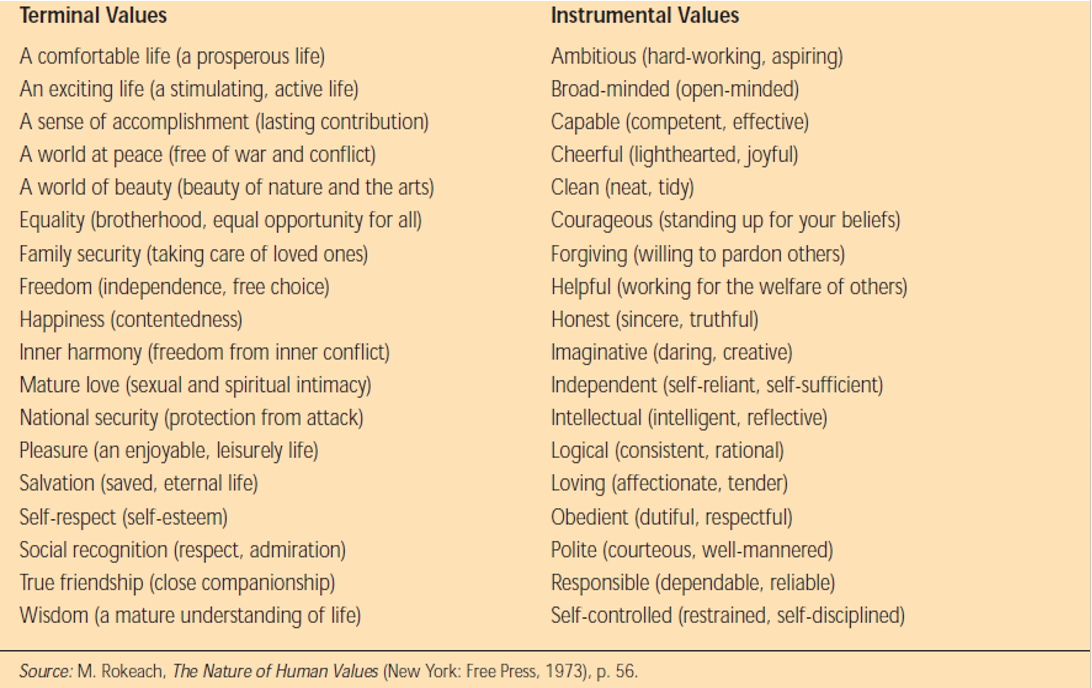- Collective conceptions of what is considered good, desirable, and proper or bad, undesirable, and improper in a culture.
- Concepts or beliefs that guide how we make decisions about and evaluations of behaviours and events.
- “A specific mode of conduct or end-state of existence is personally or socially preferable to an opposite or converse mode of conduct or end-state of existence.”
Where does our value system come from?
A significant portion is genetically determined. The rest is attributable to factors like national culture, parental dictates, teachers, friends, and similar environmental influences.
Characteristics of the values system
- Different for each person
- These are relatively permanent
- These are more central to the core of a person
- Personal values can be influenced by culture, tradition, and a combination of internal and external factors.
Importance of values
- They lay the foundation for the understanding of attitudes and motivation because they influence our perceptions.
- Individuals enter organizations with notions of what is right and wrong with which they interpret behaviours or outcomes
- Values generally influence attitudes and behaviour.
Types of values
Instrumental values (how you want to live your life)
- These are preferable modes of behaviour.
- These are traits that an individual considers in achieving one’s goals and desired outcomes.
Terminal values (what you want to achieve and experience in life)
- These are desirable end-states of existence.
- This is a goal a person would like to achieve in/during a lifetime.
Examples
